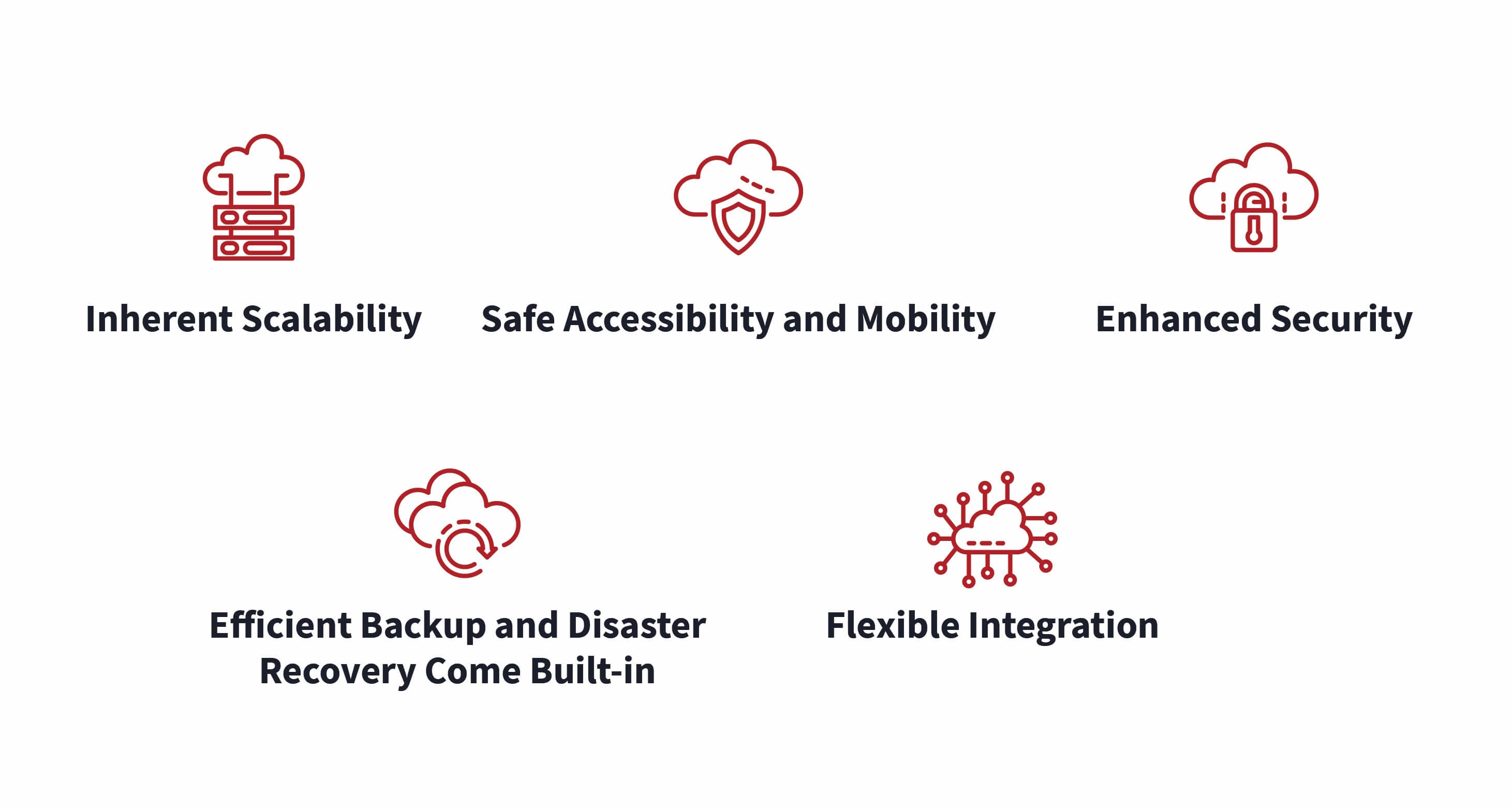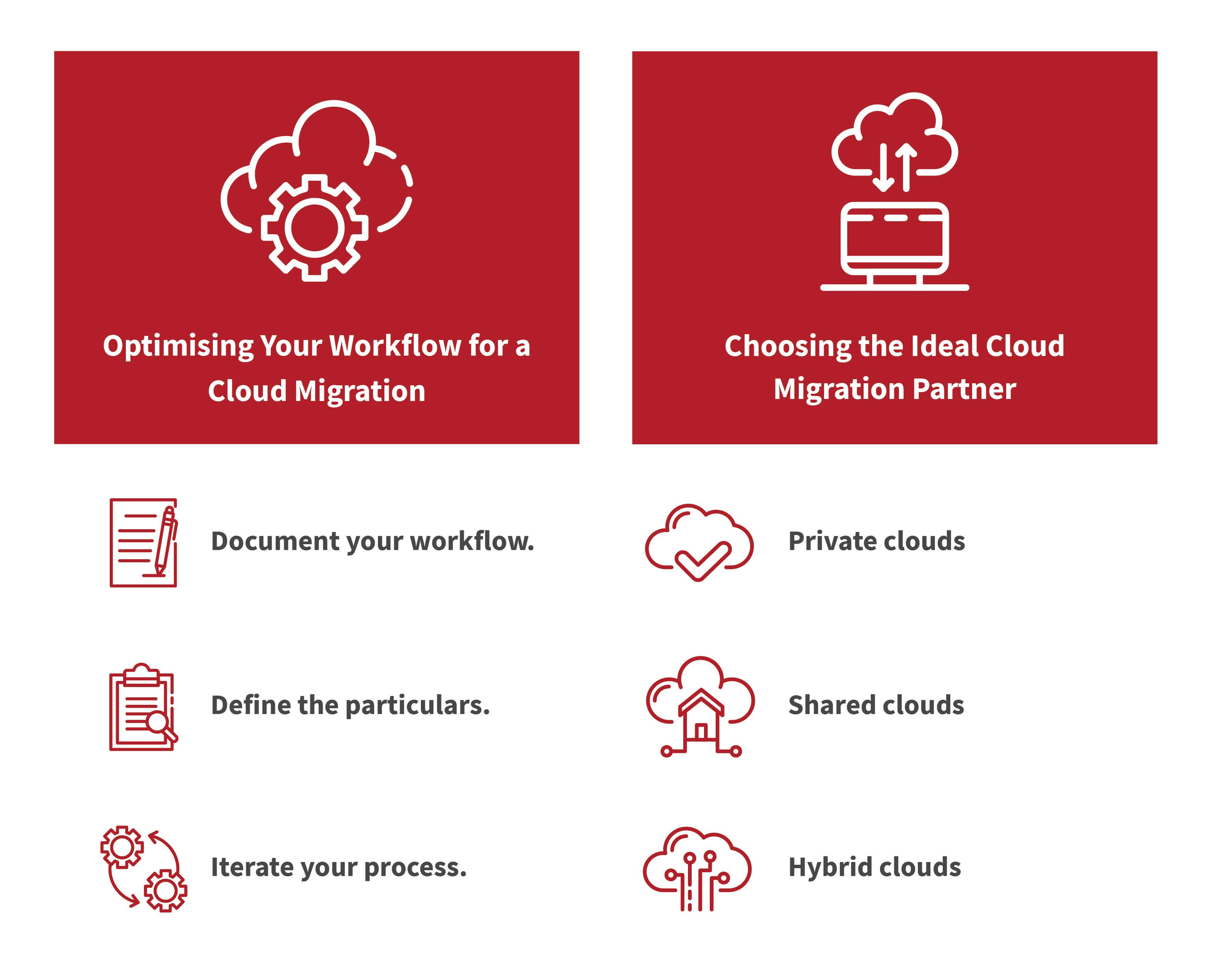The cloud is everywhere by design, but that's not the only reason you're likely to cross paths with distributed computing. It also enjoys an unshakable position at the forefront of modern business technology.
Cloud computing generated more than USD 300 billion in revenue in 2020. As of 2021, cloud-based software-as-a-service, or SaaS, systems accounted for more than two-thirds of all enterprise infrastructure.
Such prominence isn't just due to a few big players. Cloud usage dominates across the board, with 81 per cent of all enterprises planning or operating a multi-cloud strategy and 82 per cent of all business workloads residing entirely in the cloud. One 2019 survey found that 72 per cent of law firms intended to increase their use of cloud solutions in the coming year – and that figure has likely risen since.
Critical Benefits of Digitalising with Cloud Solutions

Why is the cloud such a popular tool for business digitalisation? There are a few indisputable advantages:
Inherent Scalability
SaaS adapts to the pace of business. It takes almost no effort to scale up your cloud services when things are gaining steam. It only takes a click of a button to have additional servers that run identical business applications, to split the workload.
Likewise, you can readily scale down as well. For example, you might reduce server usage to limit computing expenditures during holidays, where business volume is low.
Safe Accessibility and Mobility
Companies that use cloud computing can share data securely, doing so on the fly. Office staff can collaborate with their coworkers working from home or even overseas. Core stakeholders can keep up with project progress from anywhere using their preferred mobile devices. The learning curve is minimal, allowing teams to focus on sharing, feedback, and innovation.
Security is also a core component of most cloud technology. You retain absolute control of what data can be accessed and who can see it. Data security even extends to the software modules and features you use. For instance, a law practice might allow specific interns to view particular case files while allowing a partner global access to all data. A good data silo would even allow implementing a Chinese Wall in your firm.
Accessibility and mobility combined to make cloud tools disaster-proof. The uptick in SaaS adoption during the pandemic and the cloud's continued dominance stand as testaments to the value of such perks.
Enhanced Security
Data flexibility counts for nothing if it lacks security. Fortunately for those considering the cloud, the proof lies in the results.
As surveyed by RapidScale, some 94 per cent of businesses saw an improvement in security after migrating to the cloud. A whopping 91 per cent said it was easier to satisfy compliance requirements with cloud tools.
Such security improvements make sense when you consider the fundamentals of cloud technology. The overwhelming majority of data transmitted over networks and stored in databases are encrypted, so only approved stakeholders can view its contents. Your data is far less accessible to hackers and other unapproved parties on the cloud.
Cloud hosts also play vital roles in cybersecurity governance – rigorous monitoring is their full-time job. Unlike an in-house IT team or server administrator, they don't constantly divide their attention between data safety and other tasks.
Most cloud-based services also grant you fine-grained control. You can implement different security settings for individual users or groups to designate trusted stakeholders within an organisation and share info with clients.
Efficient Backup and Disaster Recovery Come Built-in
Computers fail, and unforeseeable events happen. Those who survive by differentiating themselves by reacting appropriately and the cloud simplifies taking the unpredicted in stride.
After a disaster, cloud-based services typically recover faster than their on-site counterparts can. Because cloud storage sidesteps capacity constraints, it's easier and less expensive to create and restore backups as needed. Flexible procedures and storage schemes, such as on-demand resource provisioning, archiving, and cold storage, also improve your odds of surviving an event unscathed.
With the cloud, your data is always available. This accessibility even holds if your local computer equipment sustains damage – something on-site storage can't offer.
Flexible Integration
Leading cloud platforms feature application programming interfaces or APIs. These protocols enable fluid communication and connectivity between multiple software tools and ecosystems.
Want to move part of your workflow to the cloud and continue using a preferred app for the rest? APIs let you do so with minimal fuss.
Start Your Cloud Migration off Right

Migrating to the cloud is a big job, especially for firms with established practices. Fortunately, you can make migration easier by focusing on two key domains: optimising your workflow and choosing your cloud partner.
Optimising Your Workflow for a Cloud Migration
- Document your workflow. Create detailed documentation of the things you do. Documentation ensures you and your partners know what needs migrating and establishes a handy efficiency baseline for comparison after the fact.
- Define the particulars. Search for purpose in the things you previously documented. Try to get a good feel for why each element is essential. Defining the unknowns lie helps you set achievable bounds for your migration task list.
- Iterate your process. You already do this daily – now apply what you've learned along the way. Refining your workflow helps you avoid migrating elements that might be better left on the drawing board.
Choosing the Ideal Cloud Migration Partner
Cloud service providers offer a range of setups. Ask yourself which of the following variants suits you best:
- Private clouds feature software and hardware computing resources that only your organisation uses, regardless of whether they're hosted at your business or remotely. These implementations offer increased control and adaptability, but they come at a higher price.
- Shared clouds come with low costs, minimal maintenance, and high reliability. You'll share resources with other businesses, which may limit on-demand scalability. Still, your section of the cloud will naturally remain cordoned off from theirs.
- Hybrid clouds combine the best of both worlds. You can hop into the public cloud when you need to scale while your critical assets remain private. A hybrid approach may be appropriate if you want to leverage existing infrastructure.
When choosing one of these options, always understand your security needs and risk appetite. On top of finding a partner that supports your preferred implementation, you need to choose an expert that isn't afraid to confront you with feedback. A SaaS provider that's willing to tell you what you shouldn't do is far more valuable than someone who'll put you at risk by agreeing to anything.
Migrating Your Mindset

You can't just migrate your apps and workflows to the cloud. As with any technology, you also need to shift the way you think. For instance, when humanity first began using email en-masse, countless victims fell prey to email phishing schemes that tugged at their emotions. To stay safe, users had to adopt a completely different perspective on communication.
Tessaract is a cloud-based business management software platform that does more than merely digitalise your files or make it easy to communicate remotely. With our capable Professional Services professionals providing bespoke migration and implementation services, you can be sure to enjoy a seamless transition into the cloud.
Let the Tessaract team help you define your path towards workflow automation, choose the ideal cloud solution, and build a custom app that keeps productivity soaring. We'll even provide staff training to make migration seamless within your firm. Make digitalising your business a success by booking a demo today.